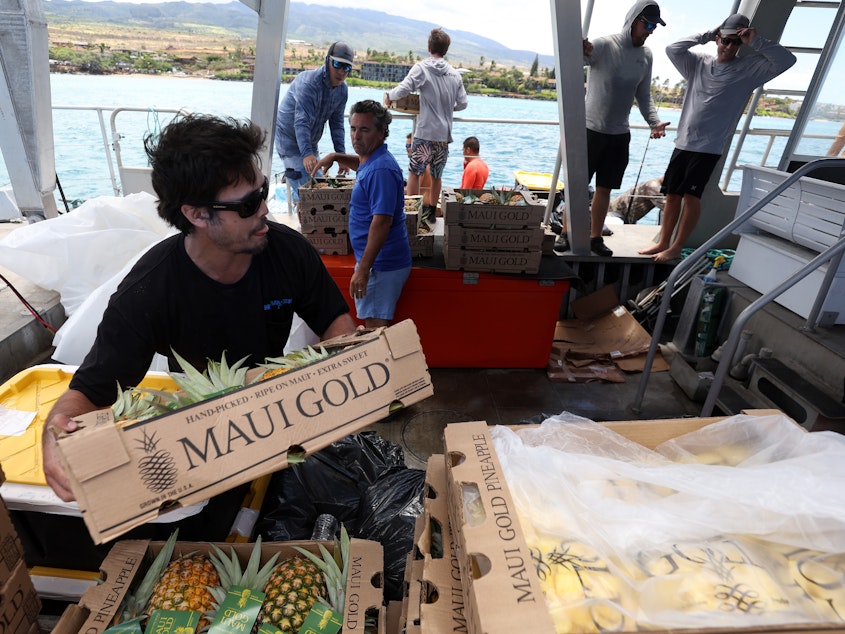The number of dead from Maui's fires rises as local residents press to see Lahaina

The death toll from the Maui wildfires rose to at least 99 on Monday as local and state officials warned that number would rise while also acknowledging public frustration from residents still barred from visiting Lahaina.
"We know that it's frustrating," Hawaii Gov. Josh Green said at a news conference. "Stage 0 is getting through all the properties where those who have passed are. When we get out of that, we'll be able to open the road completely, which will make everything a lot easier."
Maui County Fire Chief Bradford Ventura said that the perimeter of the Lahaina fire is cool and hasn't expanded. He said local officials will fly helicopters over the area on Tuesday to check for remaining hot spots. The only other active fire is the Upcountry/Kula fire, which has proved more difficult to put out because of inaccessible terrain such as forests and gulches.
Maui Police Chief John Pelletier said that 25% of the Lahaina area has been searched with the help of cadaver dogs. Their goal is to have 85-90% of that area searched by this weekend. So far, he added, they've only obtained three positive IDs from fingerprints on the 99 confirmed dead. Maui County Mayor Richard Bissen urged anyone missing family members to visit the Family Assistance Center and provide DNA swabs so that identifications could be made for those who are still unaccounted for.
According to Shelee Kimura, CEO of the utility Hawaiian Electric, power has been restored power for all but about 2,000 buildings out of 12,400 that initially lost it (not counting those that were destroyed), though a lot of work still needs to be done to permanently fix infrastructure.
Sponsored
While there is still no information about what sparked the fires, Hawaiian Electric has faced scrutiny in recent days about why they chose not to shut off the power when the island was facing strong winds.
Kimura said a news conference that the shut-off practice was controversial and not universally accepted: "It can be seen as creating a hardship for those customers that have medical needs, that are at higher risk. So, these programs, particularly for elder or other vulnerable people with specialized medical equipment, this can be a very high risk for them. So that's why many don't have it."
Green also faced questions at the news conference about Hawaii's preparedness for the fires. He reiterated that he had asked the state's attorney general to perform a comprehensive review of the decisions made by officials related to the fire, as well as existing policies.
The Hawaii Emergency Management Agency has confirmed that local officials did not activate the siren system, which Green addressed: "I lived on the shoreline for many years," he said, "Typically when sirens go off, they're for tsunami warnings ... and people, historically, would immediately go upcountry. I'm not saying we shouldn't have warning signs, of course we should. But it's a lot more complicated than that." [Copyright 2023 NPR]

